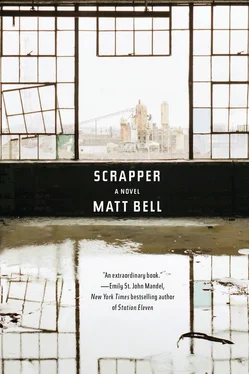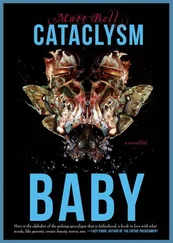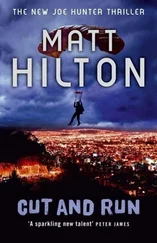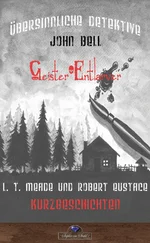Stop, the rapper begged.
I can’t, he said.
The tube snaking back out of his nostrils. His body relaxing, a deep breath gathering, but when he opened his eyes the purple gloves were dipping the tube back into the lubricant.
Please, please don’t.
When the rapper started screaming a nurse slid his arm around the rapper’s neck, applying pressure to put his head against the headrest, placed another ungloved hand across his forehead. The bluing tattoos on the nurse’s arms reading like faded threats. The muted sounds of the nurse’s attention. How the nurses never spoke. How they instructed only with their hands.
Please, the rapper said. Stop. Stop it. Please stop.
The flatness of the imperative, spoken in the weak voice of a prisoner.
This is me, he said. This is me.
This is me, he said. I can’t do this.
This is me.
The three men released him, their hands returning to comfort, to assure the end of the demonstration. The rapper cried as they rubbed his shoulders, as they gently touched his head and face. Less than three minutes from beginning to end. The feeding tube never fully inserted. The nutrients hanging untouched from an IV stand, like oatmeal in a plastic bag. The rapper moaning with his face in his hands.
When he watched the finished video he knew exactly when they would fade to white, at the worst moment of his disgust with himself, his failure to suffer once what Adnan Fahim was suffering twice a day. The unfreed man, left behind after all the men who had brought him to his prison were sent home, at the end of the bad days. As if the bad days of a prison ended when the guards decided they did.
See the rapper in his street clothes, face-to-face with the rapper in the orange jumpsuit trapped on the screen, the rapper watching himself on the director’s laptop, in the director’s hotel room. Watching it again, his failure to commit. The fade to white reversing, the rapper’s face returning to the screen, himself sitting in the restraint chair, unmolested again, alone inside the frame. Tears in his eyes but the words read off cue cards. The rapper on the screen saying the words scripted before the demonstration began, the way the rapper had always known he would be expected to end his statement.
Peace, the rapper heard himself say. His eyes bloodshot, his lip shaking.
Peace, he said again.
Peace and good morning.
AT THE PRECINCT, IT WAS always the same detective who questioned Kelly, a baby-faced man with a hard belly busting over his belt. The heavy detective came in and out of the blank square of the interview room and each time he entered he questioned Kelly and each time Kelly promised to tell him everything he could. At first Kelly thought he remembered almost nothing, that finding the boy had overwhelmed every other possible interest, but with every new question he remembered a little more, and so how to trust what he wanted to say, if he knew it could change?
What do you remember, the heavy detective asked again. What do you remember now?
The boy, he started to say, before the detective interrupted: Daniel, the heavy detective said, and Kelly blinked, said, Who?
The boy, the detective said. The boy’s name.
Daniel. Kelly knew he wasn’t a reliable eyewitness because when he was confused he believed everything he was told. He remembered more about going into the basement than he had when he walked into the hospital. Or else he thought he did. He could see the shape of the low room, its walls that before had disappeared into the dark. He had not recognized the mattresses nailed to those walls but as the heavy detective described them he saw the sagging outline of each one, the rolled towels and eggshell foam duct-taped to fill the creases between.
The detective searched his notes, shook his head. He was testing Kelly’s recall but Kelly recalled mostly only what the detective had told him first. The detective said the boy hadn’t seen much either, only a mask over the kidnapper’s face, only the hood of a red slicker worn against the weather.
The detective asked, Why didn’t you call the police?
I didn’t think, Kelly said. But whoever put the boy in the basement must have meant to come back for him. I wanted to be gone when he did.
He asked the detective if they knew who took the boy. The man in the red slicker. Who was he? The detective didn’t know, wasn’t afraid to admit it, at least here in this closed room. The boy’s parents had reported him missing but not until he’d been gone a day. Investigation revealed it was just a miscommunication — each parent had thought he was with the other — and bad parenting wasn’t necessarily an indicator of foul play.
The heavy detective said, There’s a reward, you know. Did you know about the reward?
Kelly hadn’t but he said, I saw something , and the detective nodded, made an appreciative noise. It was best when they could agree. What Kelly remembered most wasn’t any particular detail but how the experience had split, how there was a basement with a boy and a basement without. How somehow he had gone into both basements and perhaps two people had come out, with slightly different ideas about what they had seen.
He’d felt this way before, when he was a boy himself.
The boy, the reward, Kelly wasn’t sure what he knew and didn’t know. The boy’s face wasn’t the same as in his last yearbook photo, the one the news had shown, broadcast beside some stranger’s cell-phone picture of Kelly cradling the boy in his arms, carrying him into the emergency room, the boy’s face blank, the chainless cuffs clasped around the boy’s ankles, the boy’s skinny bones swinging limp from Kelly’s grip.
The expression on Kelly’s face hadn’t been one he recognized. The blonde reporter had called it bravery but Kelly didn’t think this was the word.
When there was nothing else to say the heavy detective put his card on the table. Probably they would have more questions but Kelly wasn’t a suspect. The detective said this several times and each time no qualifications followed, no yet , no at this time . Kelly knew he wasn’t guilty but it was good to hear the detective say the words. Surely the detective must have said his name before this but here it was on his card, seemingly for the first time: sanchez.
The heavy detective taped the interview, would file the recording for future use. Other officers wanted to collect other evidence and Kelly let them take whatever they wanted. In the parking lot they photographed his truck, measured the tread of his tires, and in the precinct house they did the same with his shoes before attempting to take his fingerprints without success. Fifteen years of manual labor had worn away the ridges on his fingertips and perhaps for years he hadn’t left a proper fingerprint on anything he touched. He’d committed crimes but he’d left less of a stain than he’d thought. He pulled his hood over his hair, shivered in the precinct lobby, waited for the police to release him into the remainder of the night. Perhaps he was freer to act than ever before. But even without fingerprints there were other ways to leave a mark.
THE EVENING NEWS BROADCAST HIS face, showed his picture every night for a week. To pass the boredom of workless afternoons he visited his regular bars but now everyone there knew his name. He hated beards but started growing one anyway, layered hooded sweatshirts beneath every jacket. He couldn’t go back to scrapping but with the promise of the reward he rented a new apartment in a better neighborhood, farther from the places where he’d worked.
The phone rang. Once Christian women knew his name they found him too, dropping off casseroles and staying for prayers. More reward. The first woman sheepish when he opened the door, then bold once in his kitchen, opening cabinets and shaking her head at the paltry plates, glasses, silverware. He lived alone but the next day the first woman returned with others, women who brought him food for a family, then circled his table in their Sunday dresses, and when he wouldn’t take their offered hands they closed their circle around him, centered him in their words.
Читать дальше












